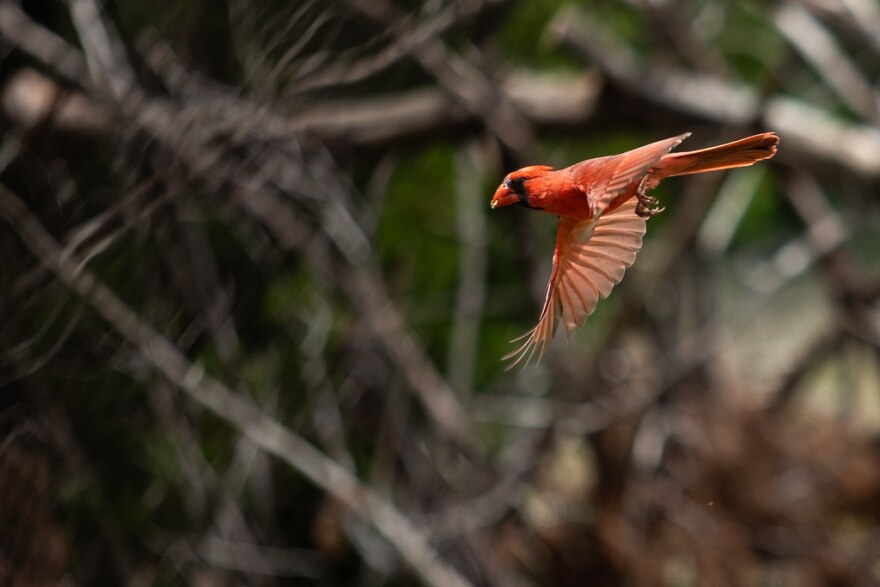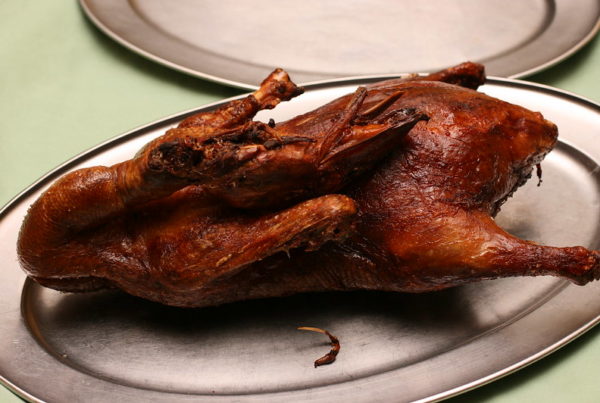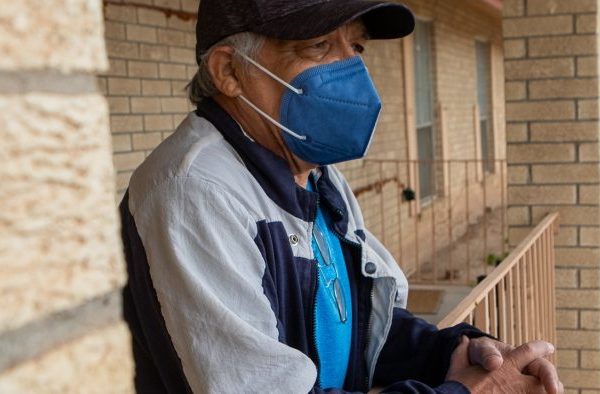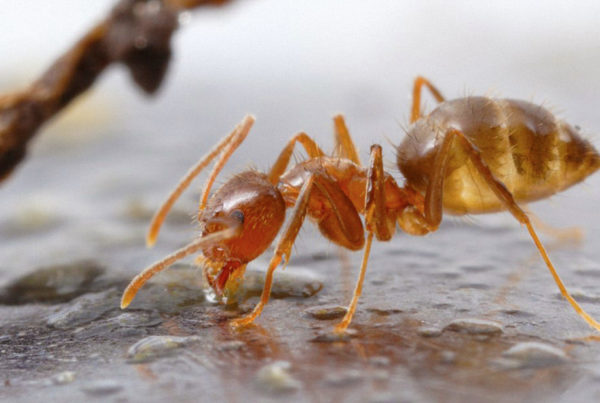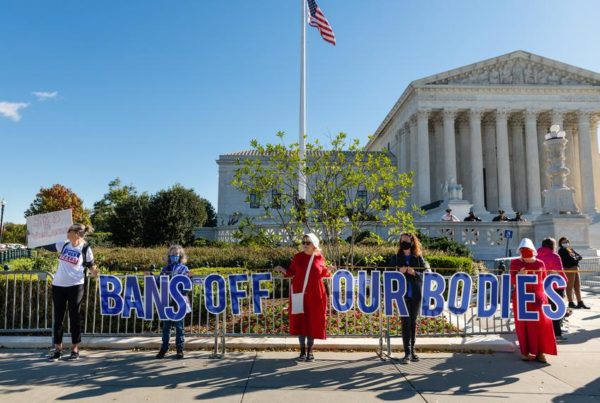From KUT:
About two years ago, things seemed to go silent. Coronavirus had arrived in Austin and the city was entering its most stringent “stay-at-home” mandate of the pandemic. It was frightening and surreal, but for people who research sound, it was also a chance to study what happens when humankind takes a break.
Now, research completed at Austin’s Wild Basin Wilderness Preserve may help answer one big sound-related question of those early days of lockdown: Why did the birds seem louder?
The study used field recordings taken over two years at the preserve, a 230-acre spread of conservation land bordered on the west by Highway 360.

St. Edwards University researchers tracked audio levels of wildlife at the Wild Basin Wilderness Preserve over the course of the pandemic.
Darren Proppe, the Wild Basin’s research director, said he got the idea to take recordings in the early days of the pandemic while standing on a hill and staring at the highway. He was “shocked” to see the highway was empty.
“It’s like there’s no cars! This is Highway 360! How can this be?” he said. “We should be documenting this.”
So, Proppe began walking the basin at regular intervals several times a week, taking 5-minute recordings of a suddenly quieter world.
Classified as an essential employee, Proppe was initially the only one allowed to work on the project. But once some restrictions lifted in 2021, Saint Edward’s student researcher Ederé Ohwobete also started taking recordings. Twice a week, she would visit the same spots Proppe visited a year earlier to gather tape of the world as it began opening back up again.
“In the beginning I didn’t really see anybody,” she remembers. “I saw a lot of animals, and I took pictures of them and that was nice.”
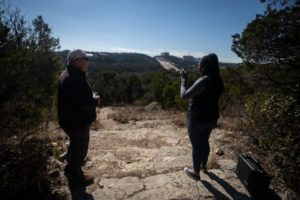
Darren Proppe and Ederé Ohwobete analyzed the sound they had collected at the preserve and found it was more acoustically complex during the pandemic.
After two years Proppe and Ohwobete took all the sound they had gathered and ran it through computer analysis to learn more. The analysis showed it was quieter when things shut down (no big surprise there). But it also found that the sound that remained was more acoustically complex.
That is to say the noises one heard at the height of lockdown were more diverse in pitch, frequency and occurrence, a lot like birdsong.
Why’s that? Well, a lot of the noises that disappeared when stay-at-home orders were enacted were lower droning sounds like noise from the highway or even from construction or landscaping work.
“Leaf blowers are a surprising noise source,” Proppe said. “They’re going all the time and they’re pretty loud.”
These are sounds that can act like a fog obscuring other higher pitched, less constant and fainter noises like birdsong.
“You have cardinals, you have blue jays, you have golden cheeked warblers,” he said, “and these are all singing at different frequencies. They’re on again. They’re off again. And so it gives a much higher complexity to that sound environment.”
This jibes with a lot of peoples’ experience at the start of the pandemic, back when so many spent more time outside, wondering if the birds had somehow gotten louder. What the research shows is, at least, why they seemed to be louder.
It’s a finding that could also help wildlife-preservation efforts.
If we could hear the birds better two years ago, that means they could also hear each other better. And that could help their survival rates.
Ohwobete says it appears that some endangered golden cheeked warblers on the preserve even prefer to nest in quieter places. She says a greater awareness of how human-made noise may impact wildlife should be one of the lessons we take away from the lockdown.
“We want to protect the water and we want to protect the trees,” she says. “We don’t often consider noise as part of the habitat.”


